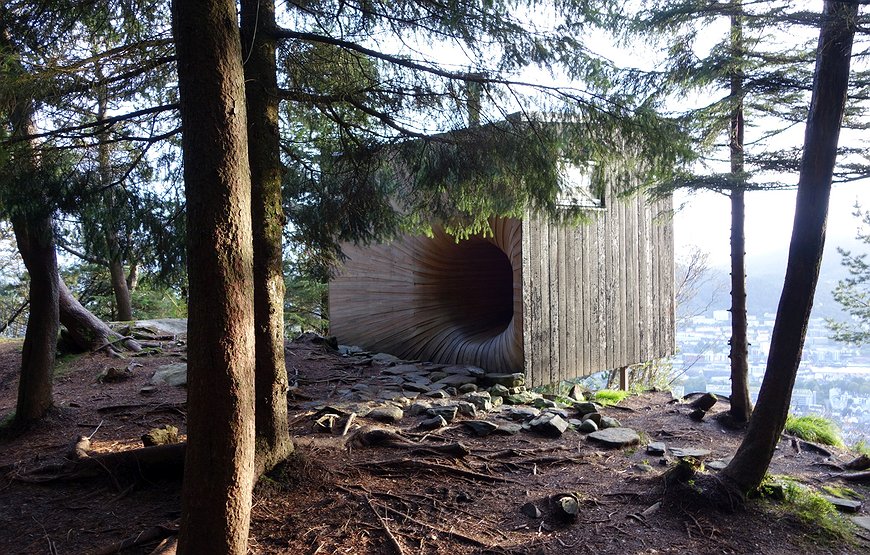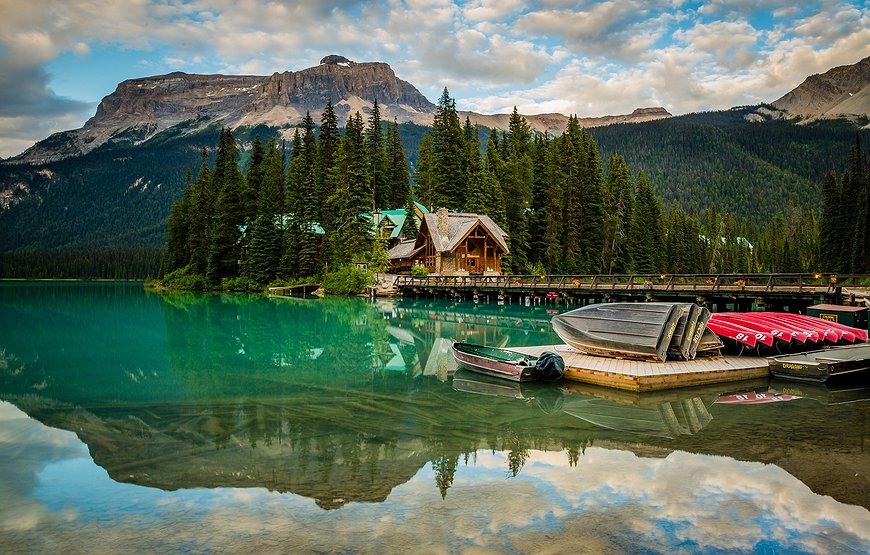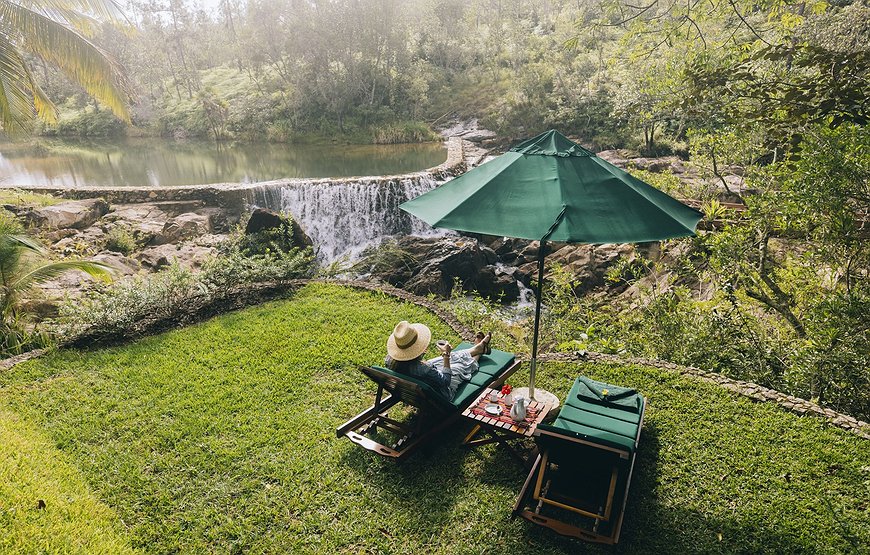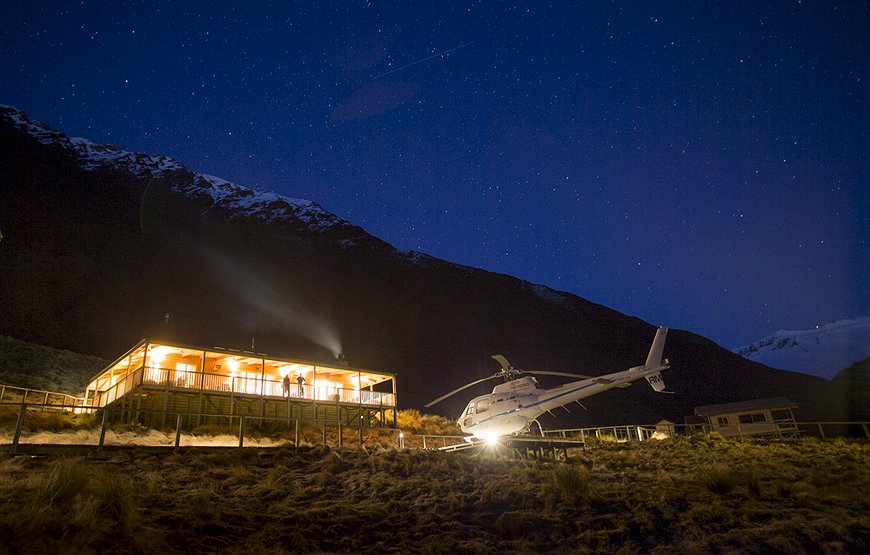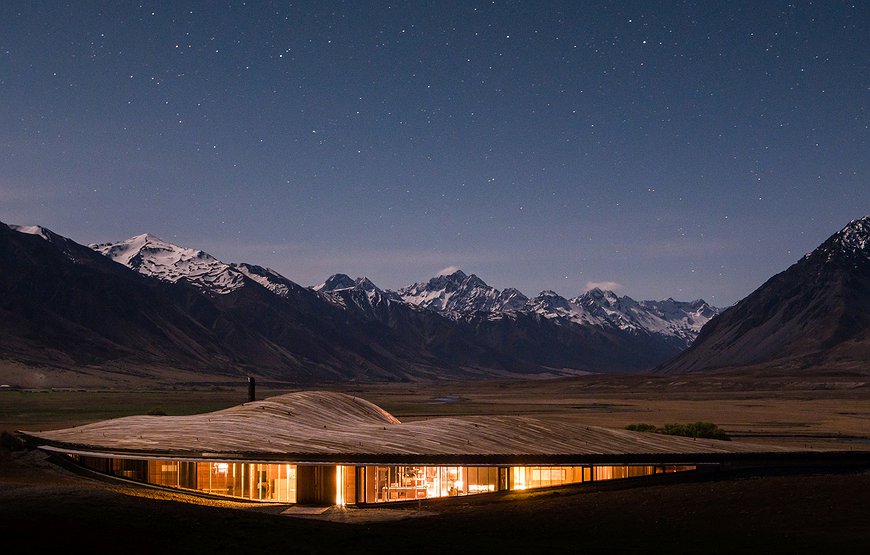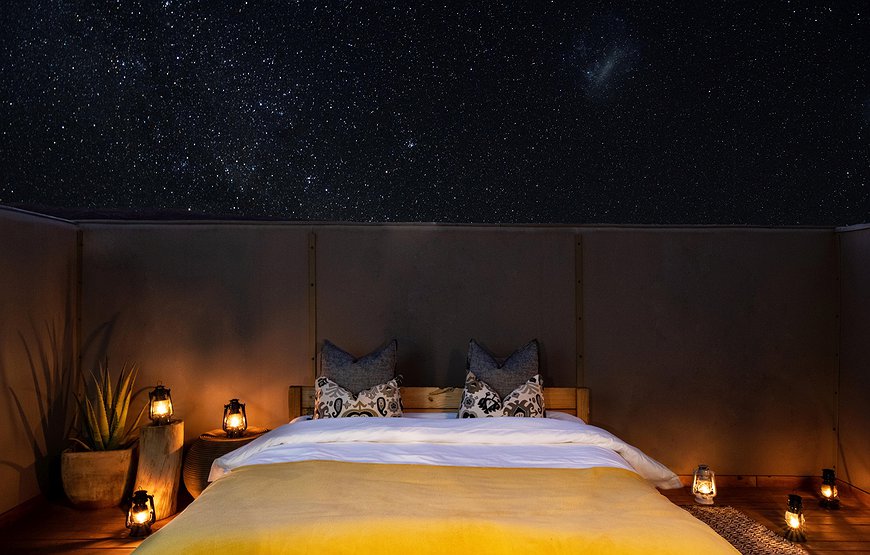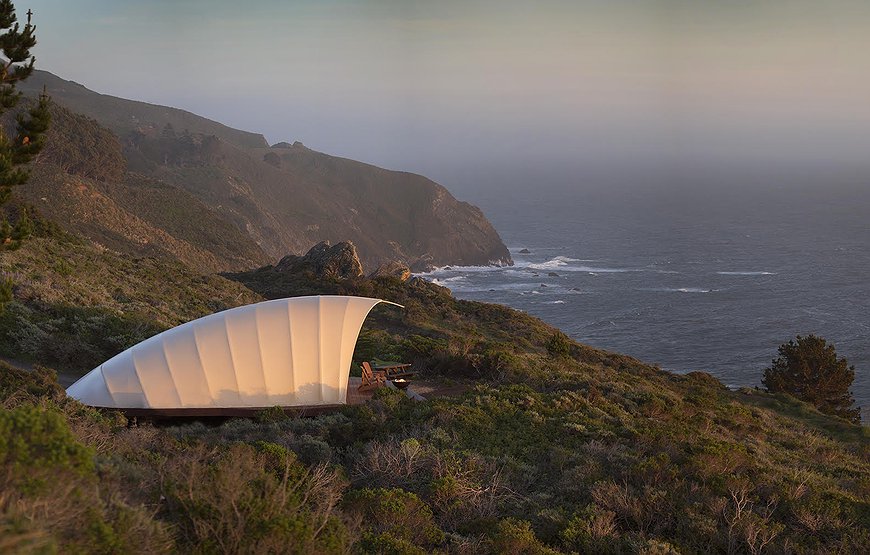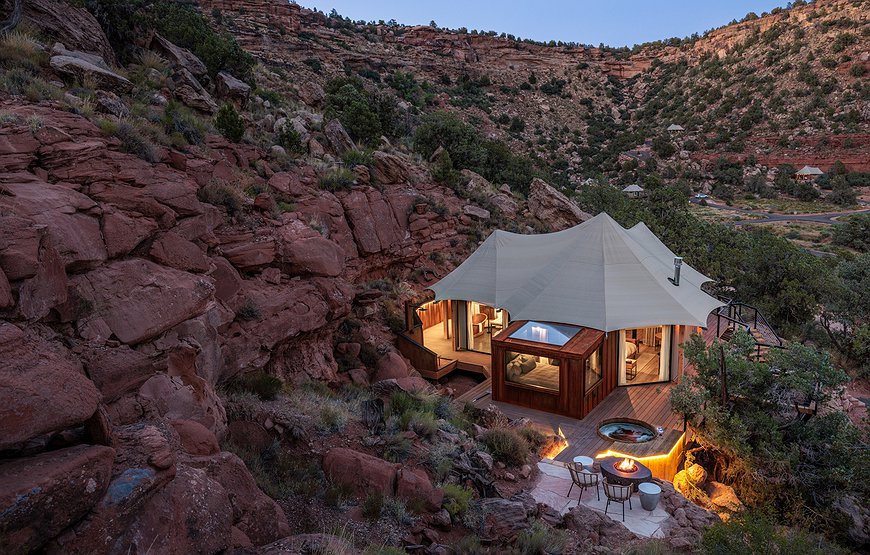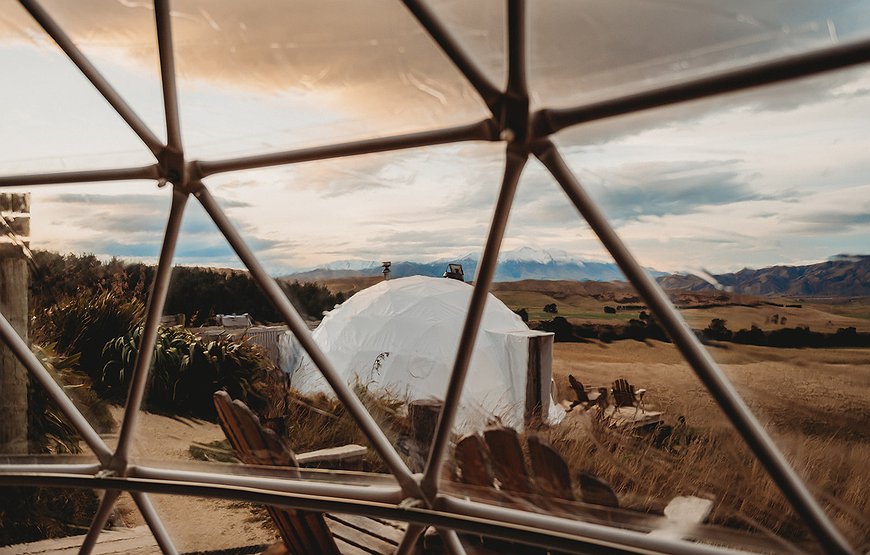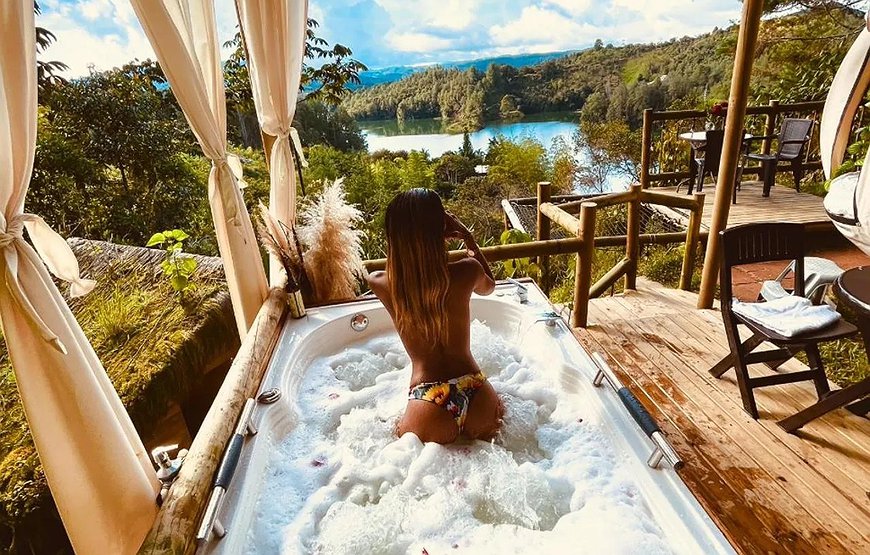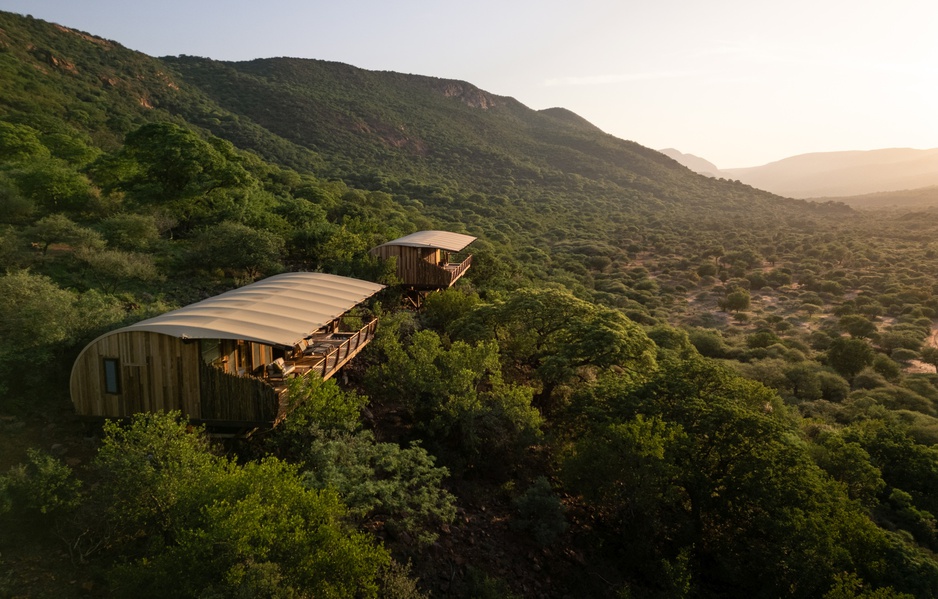
Deep in Limpopo's Soutpansberg Mountains, where ancient baobabs tower over valleys and the nearest paved road feels like a distant memory, an unlikely safari story is unfolding. Few & Far Luvhondo isn't your typical Big Five experience - there are no lions prowling the savanna or elephants trumpeting at dawn. Instead, this six-suite lodge offers something rarer in today's safari landscape: genuine wilderness without the crowds, and conservation with teeth.
The brainchild of Sarah and Jacob Dusek, who previously built the Under Canvas glamping empire across American national parks, Luvhondo sits on 5,000 hectares of former hunting land that the couple bought with no intention of opening another lodge. They were looking for a weekend house near Cape Town. What they found was a mountain range crying out for protection, surrounded by neighbors equally committed to keeping coal miners at bay.
The Forgotten Mountains
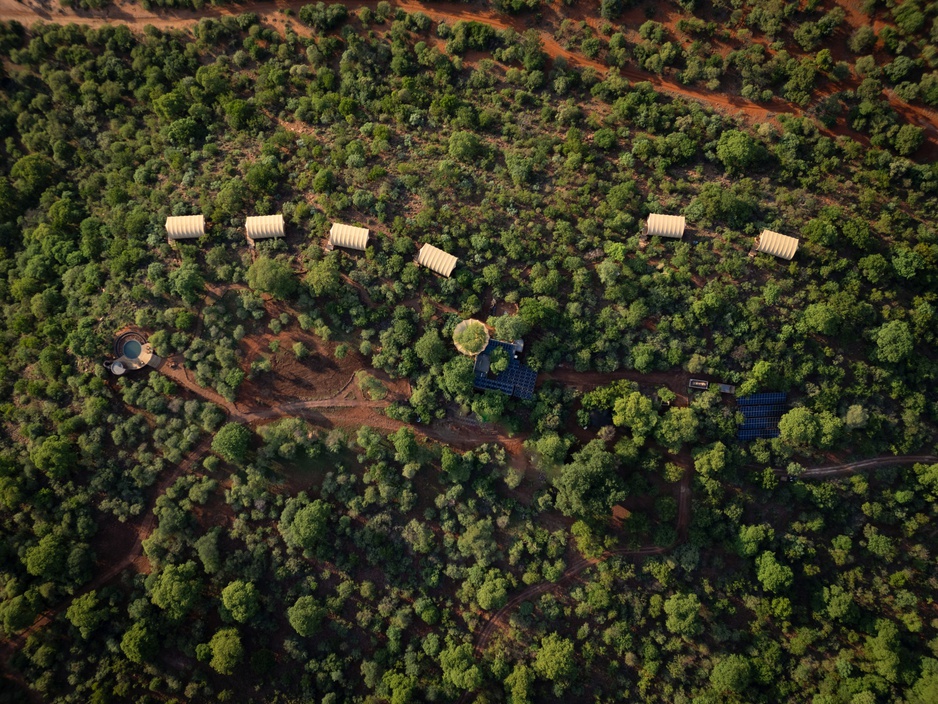
Photo by Jemma Wild
The Soutpansberg - "salt pan mountains" in Afrikaans, or Luvhondo ("wall") in Tshivenda - rises dramatically from the Limpopo plains like something from a fantasy novel. This UNESCO Vhembe Biosphere Reserve harbors an astonishing 542 bird species, 152 mammal species, and some of Southern Africa's largest baobab trees. Yet tourism here remains almost non-existent, earning these peaks their nickname: the Forgotten Mountains.
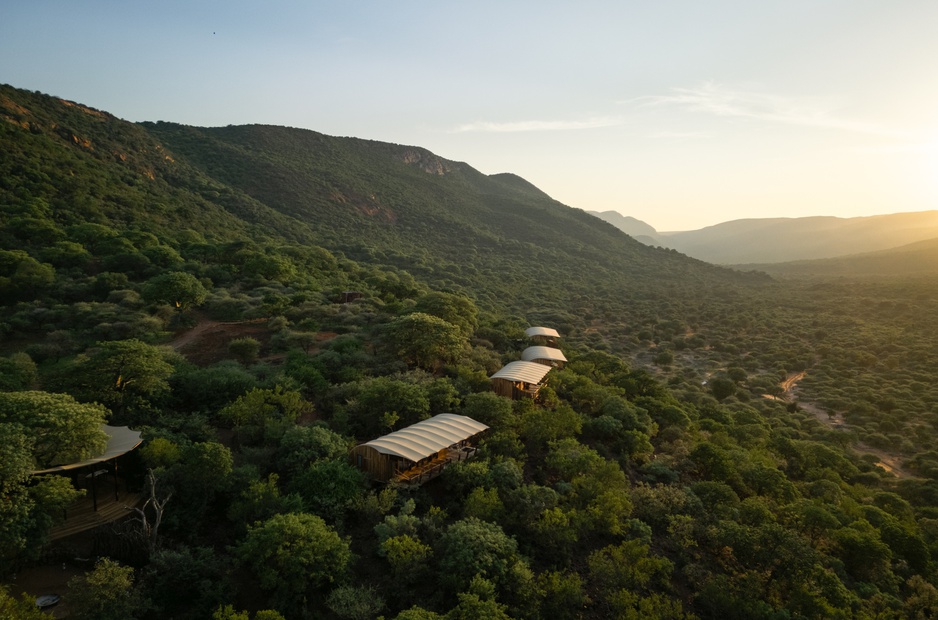
Photo by Jemma Wild
The landscape shifts constantly as you climb the rocky access road. Arid savannas give way to subtropical forests, ancient cycads peek from rocky crevices, and massive baobab trees - some estimated at 3,000 years old - stand sentinel over valleys that seem untouched by time. The silence here has weight to it, broken only by the calls of black-faced waxbills and the rustle of vervet monkeys in the canopy.
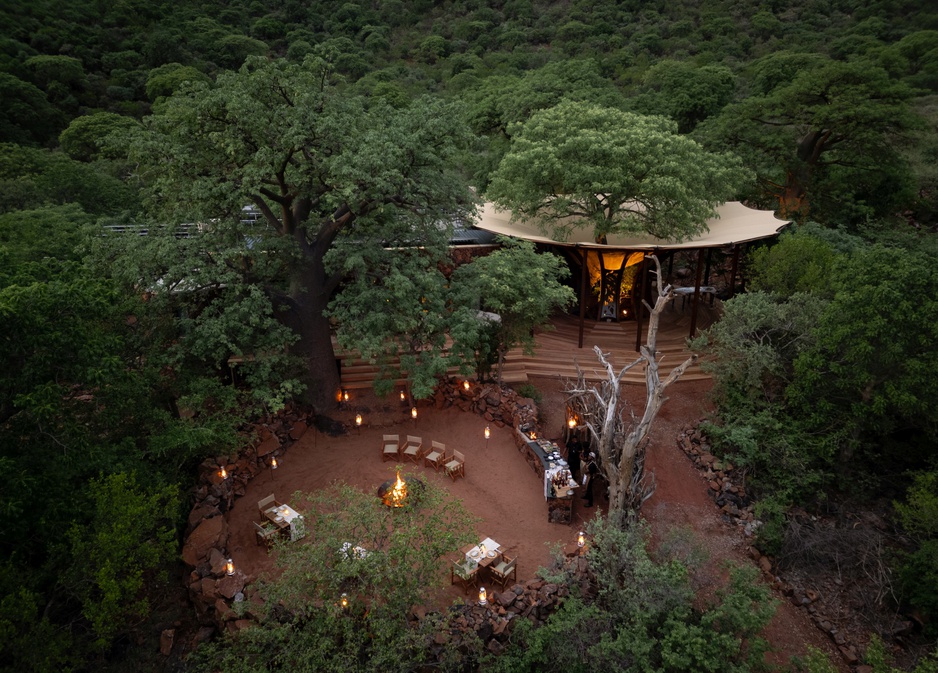
Boma Braai outdoor dining | Photo by Jemma Wild
This remoteness comes with trade-offs. The nearest commercial airport is 90 minutes away in Polokwane, and the journey from Johannesburg involves either a five-hour drive through potholed highways or a charter flight to the lodge's private airstrip. But isolation is precisely the point - Luvhondo exists to protect a landscape under threat from proposed industrial development.
The Main Lodge
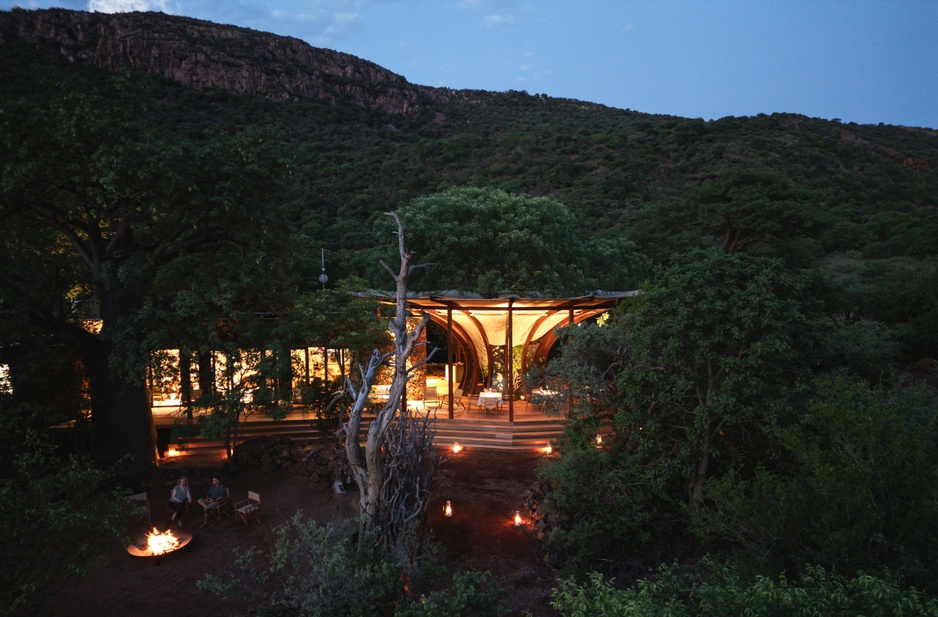
Main building | Photo by Jemma Wild
Perched on a cliff edge where a hunting lodge once stood, Luvhondo's main building curves around a living tree like a giant embracing an old friend. The canvas canopy, stretched between locally crafted eucalyptus beams, mimics the shape and strength of the surrounding baobabs that inspired its design. Floor-to-ceiling openings frame panoramic views of the valley below, where giraffes occasionally wander into view like slow-motion mirages.
The wraparound deck centers on that tree - literally. When the canvas roof arrived without the required opening, co-founder Jacob Dusek had to make the nerve-wracking cut himself, turning a design mishap into a family project with help from the couple's teenage sons. The result feels organic, as if the building grew here rather than being imposed upon the landscape.
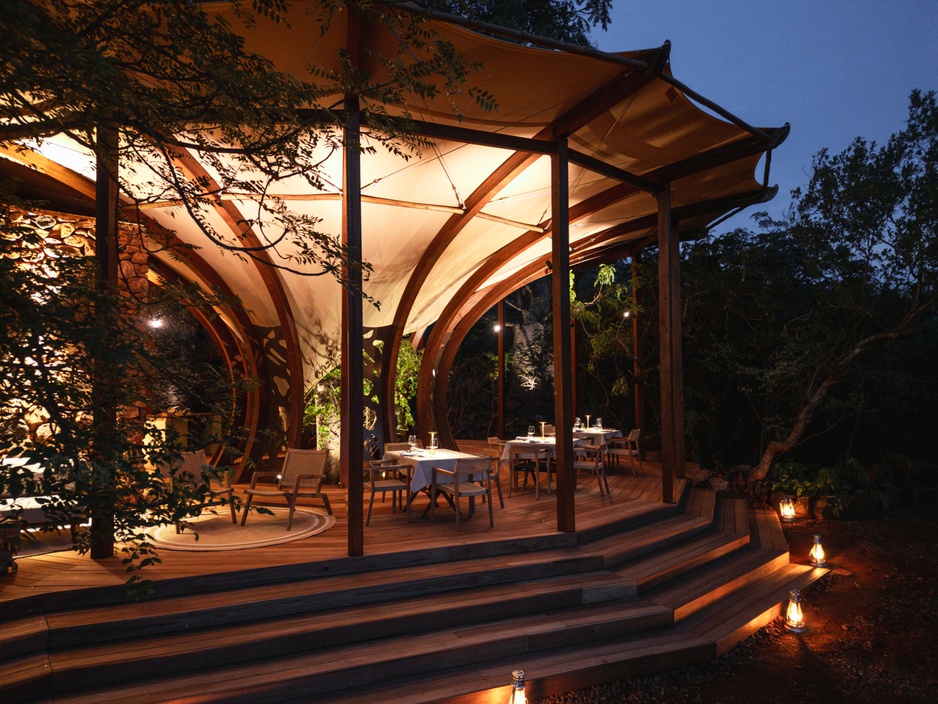
Photo by Jemma Wild
Comfortable bouclé sofas cluster around the deck under chunky knit throws, perfect for settling in with South African wine while watching the light shift across the Forgotten Mountains. A nearby baobab laden with fruit provides shade for the barbecue area, where Venda drummers and heritage dancers perform against a backdrop that could make any venue jealous.
The Restaurant
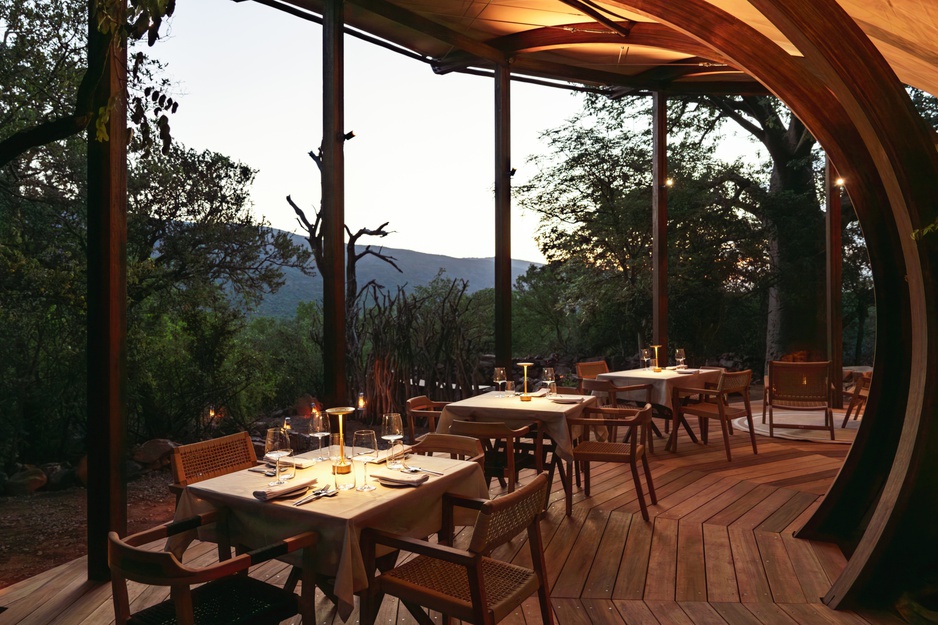
Photo by Jemma Wild
Chef Nhlakanipho Sokhela - known simply as Sox - runs a kitchen that would be impressive in downtown Cape Town, let alone in the middle of the bush. Working with just one refrigerator (everything is prepped daily), he creates menus that taste like the landscape itself: smoky, earthy, and alive with local flavors.
The approach is farm-to-table by necessity as much as philosophy. Fruits and vegetables come from Luvhondo's on-site garden, while other ingredients are sourced within a 30-mile radius. One night might bring a traditional boma braai beneath the stars, featuring boerewors sausages with spicy chakalaka sauce alongside butter chicken and grilled cauliflower with gremolata. The next evening could unfold as an elegant multi-course tasting menu with teriyaki king oyster mushrooms and springbok carpaccio topped with wasabi aioli.
Breakfast spreads include housemade granola, fresh pastries, and cooked-to-order dishes, though the shakshuka redolent with warm spices and jammy tomatoes from Luvhondo's own farm tends to steal the show. Sommelier Erica Taylor's wine selections focus on sustainable South African producers, like the smoky pinotage that pairs perfectly with Sox's cooking and the mountain air.
The dining experience changes daily - you might find yourself at a candlelit table in the main restaurant, gathered around a crackling fire for a bush dinner, or enjoying a private meal on your suite's deck. The element of surprise keeps each meal feeling like an event rather than routine.
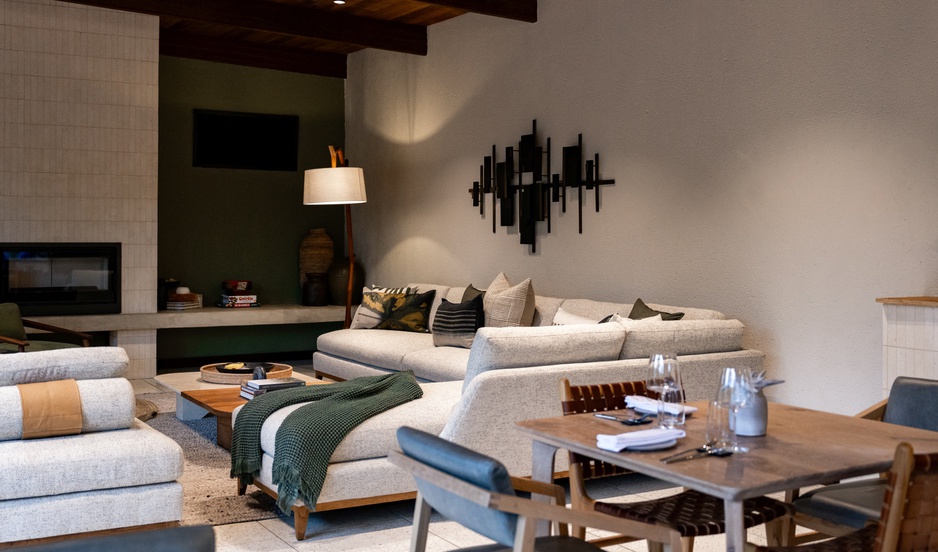
Main lodge's interior | Photo by Jemma Wild
The Cliff Suites
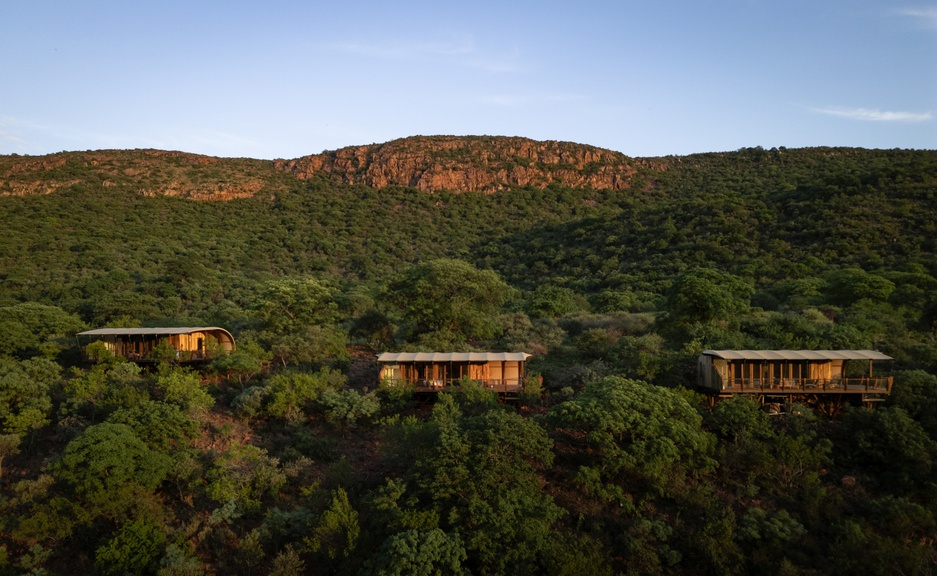
Cliff Suites | Photo by Jemma Wild
Luvhondo's six tented suites redefine the safari accommodation playbook. These aren't your typical canvas boxes on stilts - each 550-square-foot space is a masterclass in biophilic design that blurs the line between indoors and out.
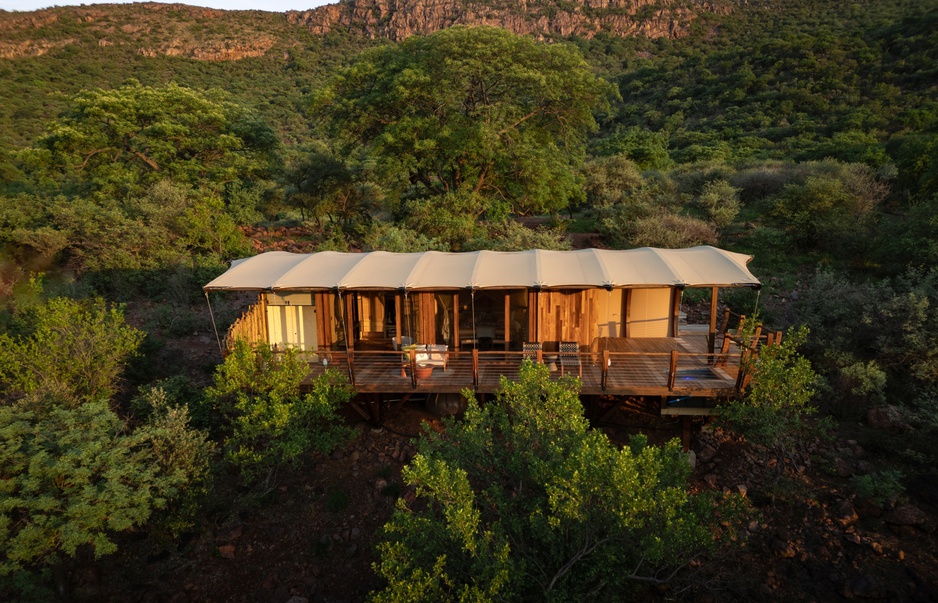
Photo by Jemma Wild
Built from locally sourced timber and canvas, the suites curve along the cliff edge like natural formations. Floor-to-ceiling screened doors open to frame uninterrupted valley views, creating the sensation of sleeping in a luxury treehouse suspended above the wilderness.
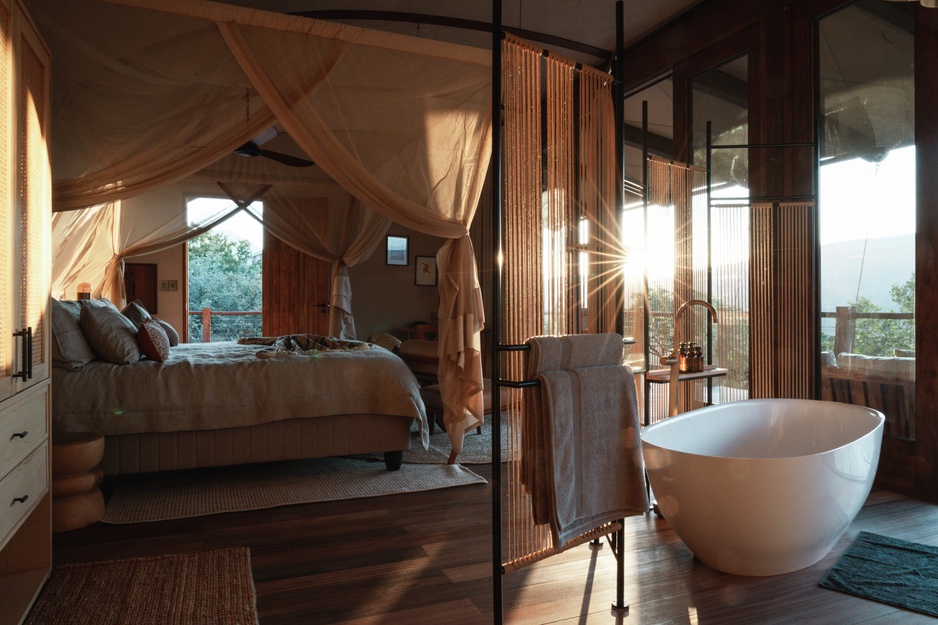
Photo by Jemma Wild
The king-size beds, draped with sheer mosquito netting, feel like something from a fairytale - complete with an air conditioning unit built into the headboard for practical comfort.
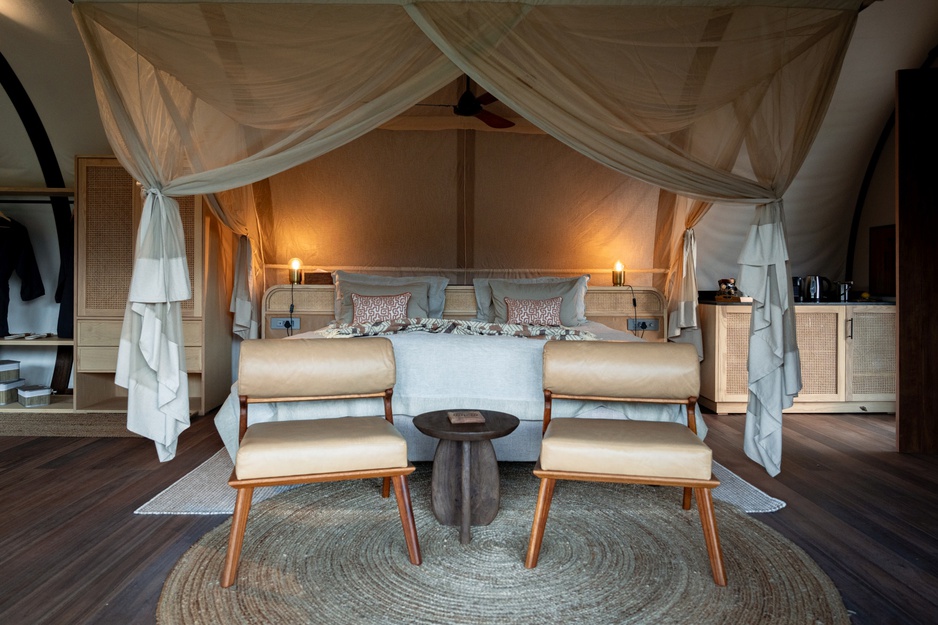
Photo by Jemma Wild
The interiors strike a perfect balance between luxury and functionality. Conversation nooks with caramel leather chairs provide intimate spaces for reading or planning the next day's adventures. Blackout curtains ensure restful sleep despite the early sunrise, while overhead fans circulate the mountain air.
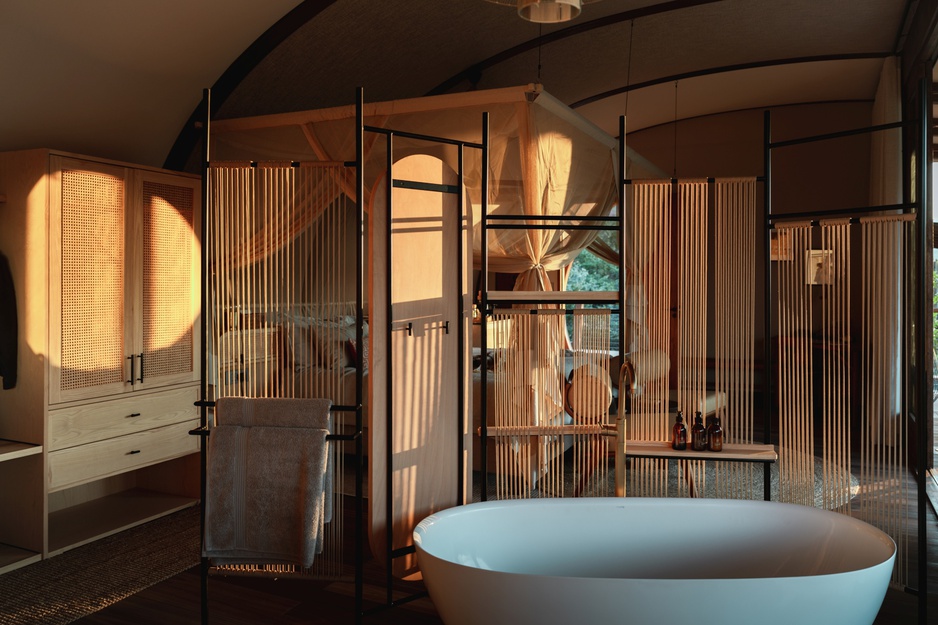
Photo by Jemma Wild
Brass fixtures and abundant textures create warmth without overwhelming the natural palette of creams and earth tones.
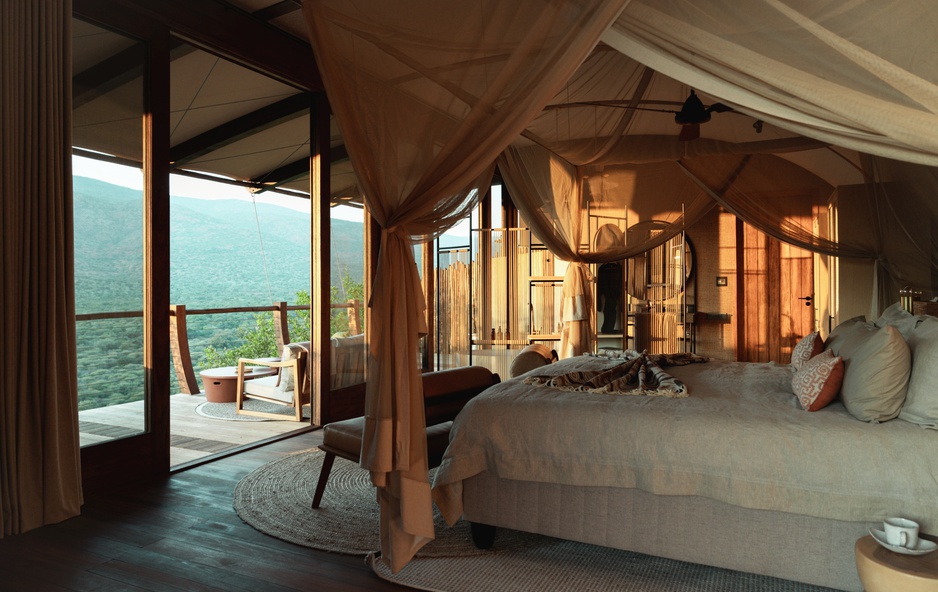
Photo by Jemma Wild
Perhaps the most thoughtful touch is the "butler hatch" - a pass-through cubby where your morning coffee appears discretely each dawn, accompanied by homemade biscotti. It's these small details, like the fully stocked minibar featuring South African wines and New Harbor Distillery spirits, that transform a night in the bush into something approaching magic.
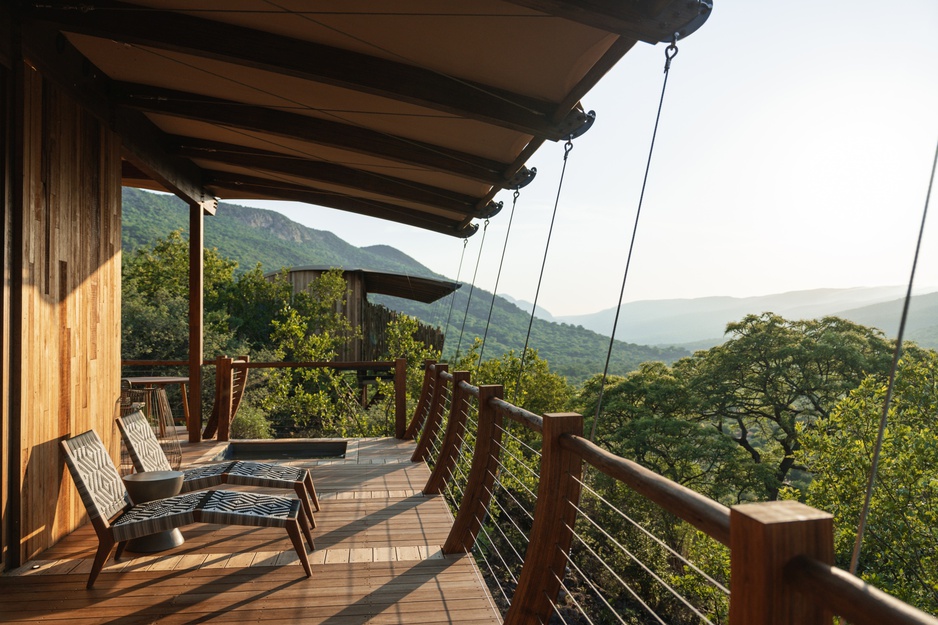
Photo by Jemma Wild
Storage throughout is generous and well-planned, with plenty of hooks and shelves for safari gear. Each suite also includes yoga mats, quality linens from South African textile brand Mungo, and robes and slippers crafted from sustainable materials.
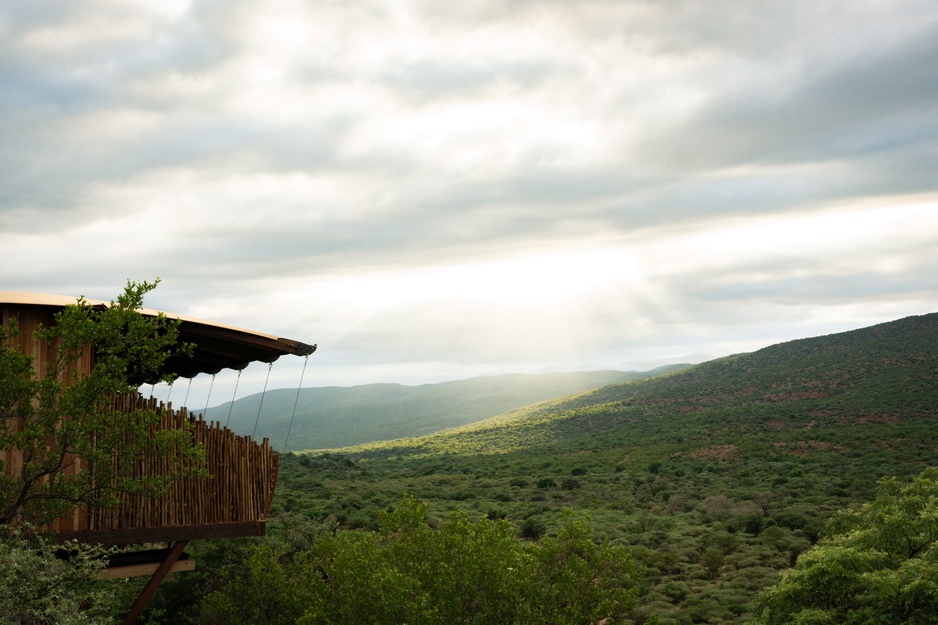
Photo by Jemma Wild
But it's the outdoor spaces that truly set these suites apart. Each features a massive wraparound deck that essentially doubles the living space.
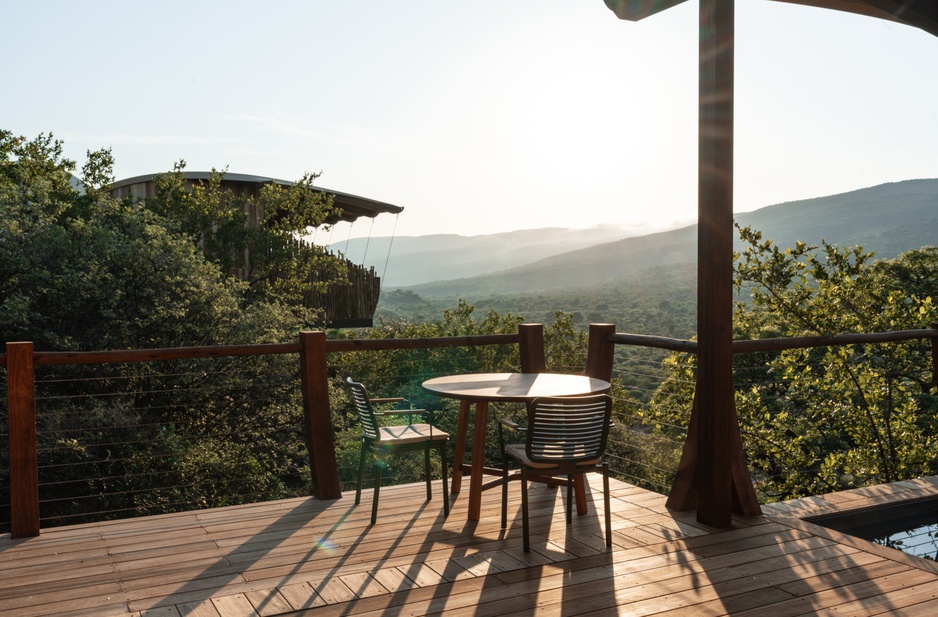
Photo by Jemma Wild
Here you'll find an outdoor shower with smooth stone flooring that mirrors the riverbed below, a private plunge pool for cooling off during hot afternoons, and comfortable seating areas perfect for wildlife watching with a drink in hand.
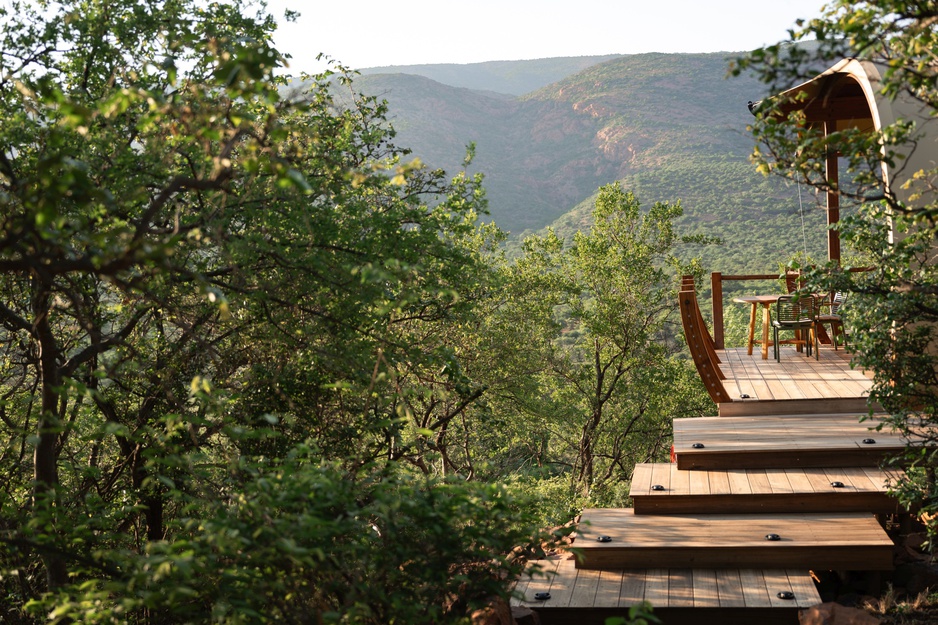
Photo by Jemma Wild
A clever misting system provides relief during the warmest months.
Vhudziki Spa
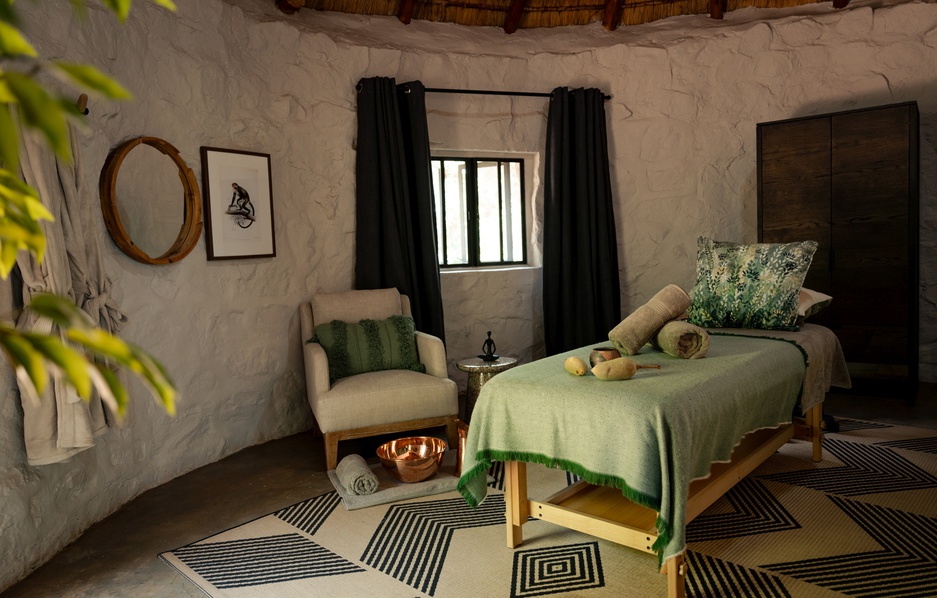
Photo by Jemma Wild
Tucked beside one of South Africa's largest baobab trees - estimated to be 3,000 years old - the intimate Vhudziki Spa feels like a sacred space. The name derives from Venda culture, honoring the indigenous knowledge of natural remedies that therapist Nungo Ravele brings to her treatments.
With over 15 years of experience, Ravele offers massages, body wraps, and facials grounded in locally sourced, organic ingredients. The star component is baobab oil, rich in antioxidants and incorporated into most treatments. The Baobab Radiance Facial begins with a warm foot soak while Ravele shakes a traditional rain stick to encourage deep, rhythmic breathing. The low lighting and cool interior create an almost meditative state as she works with rejuvenating oils and creams.
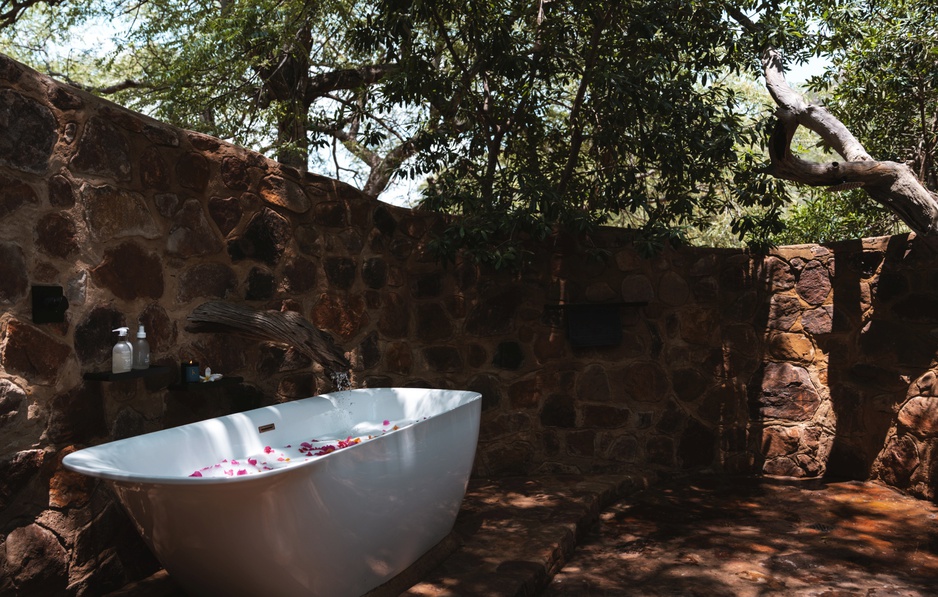
Photo by Jemma Wild
The spa's outdoor deep soaking tub sits beneath the ancient baobab's canopy, offering a unique bathing experience surrounded by centuries of natural history. For those seeking additional mindfulness activities, a walking labyrinth provides space for quiet contemplation among the mountain flora.
Treatments here feel less like typical spa services and more like authentic cultural exchanges, with Ravele sharing knowledge about traditional Venda healing practices alongside her skilled therapeutic techniques.
The Infinity Pool
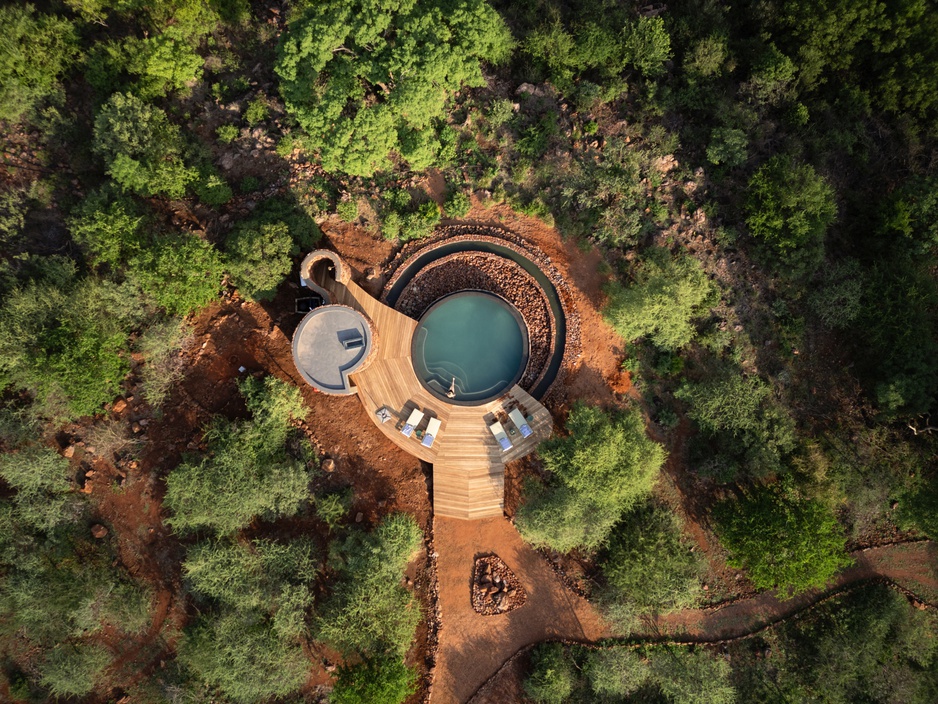
Photo by Jemma Wild
Luvhondo's infinity pool performs the ultimate disappearing act, appearing to spill directly over the cliff edge into the valley below. Positioned to capture the best mountain views, it's a spot where staff will quietly appear with towels and cocktails on demand, though you might be too mesmerized by the scenery to notice their approach.
The pool area serves as the lodge's social hub during the heat of midday, when even the wildlife seeks shade. Here you can mingle with other nature enthusiasts or simply float while scanning the horizon for distant giraffes. The setting provides a welcome respite from active pursuits and a perfect spot for processing the sensory overload that comes with immersion in such pristine wilderness.
Bush Breakfast
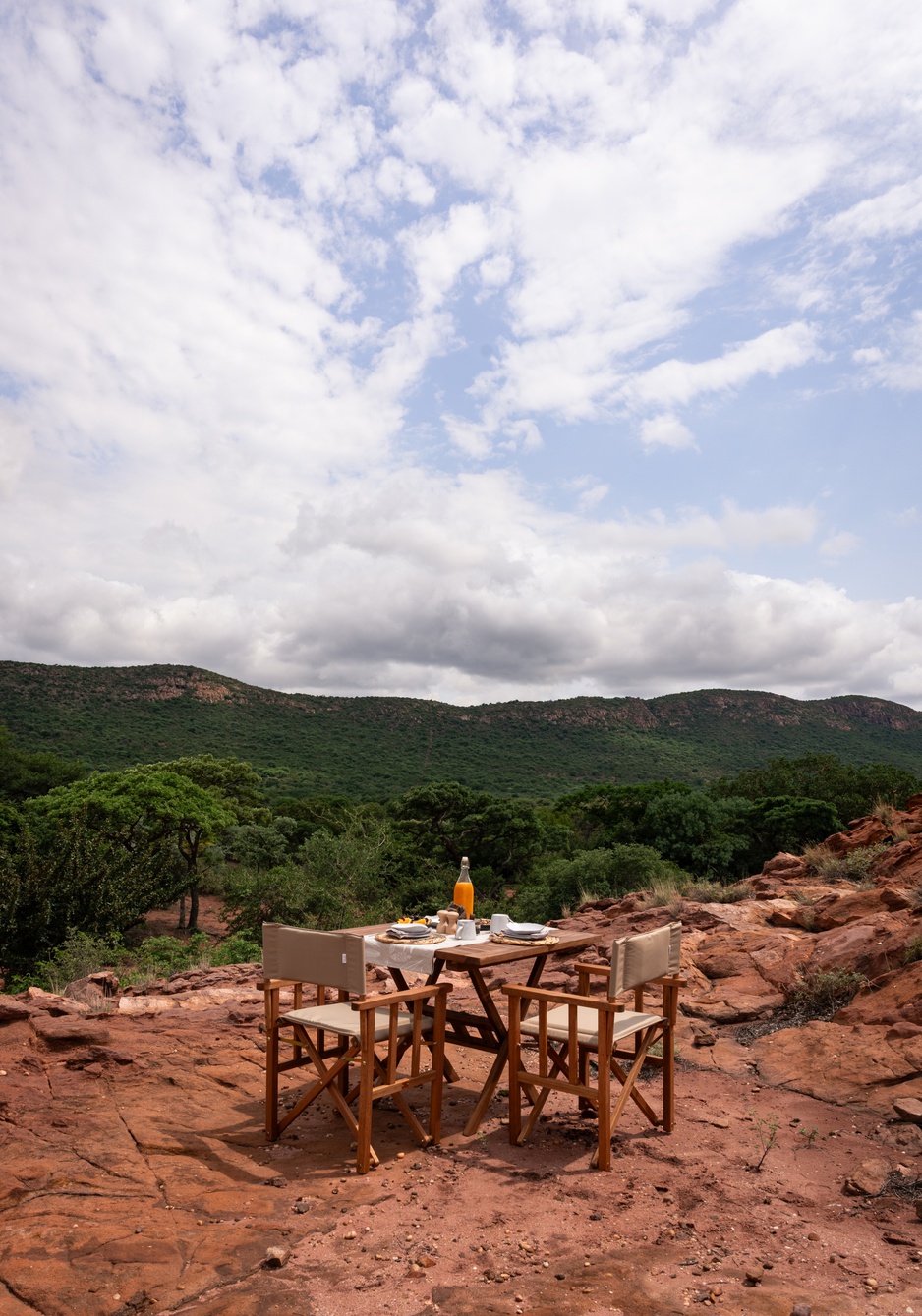
Photo by Jemma Wild
When weather permits, breakfast ventures beyond the main lodge to become a true bush experience. Picture this: you've just finished an early morning game drive and your guide pulls into a secluded clearing where a full outdoor kitchen has materialized as if by magic. The staff has hauled up tables, chairs, cooking equipment, and ingredients to create a restaurant in the middle of nowhere.
The menu might feature eggs cooked over an open flame, fresh fruits from the lodge's garden, and that essential safari staple - really good coffee brewed in the wild. These outdoor meals capture the pioneering spirit that defines safari dining at its best, where luxury means having fresh croissants and homemade jam while surrounded by untamed African bush.
Game Drives
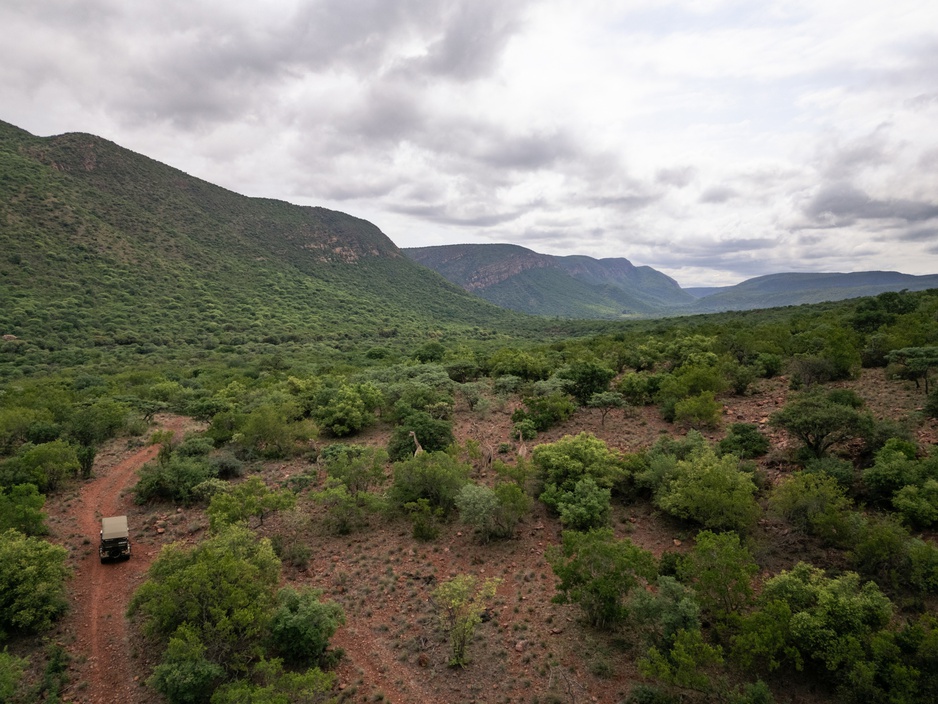
Photo by Jemma Wild
At 6 a.m., your guide's gentle knock announces the start of each day's adventure. By the time you're properly caffeinated (thanks to that butler hatch coffee delivery), you're heading out into terrain that shifts from arid savanna to subtropical forest within minutes.
Don't expect traditional Big Five sightings - Luvhondo's appeal lies elsewhere. Your guide might spend an hour following fresh leopard tracks through the bush, teaching you to read the subtle signs that reveal wildlife presence. Giant African land snails cross your path like characters from Alice in Wonderland, while towers of giraffes browse acacia trees with an elegance that never gets old.
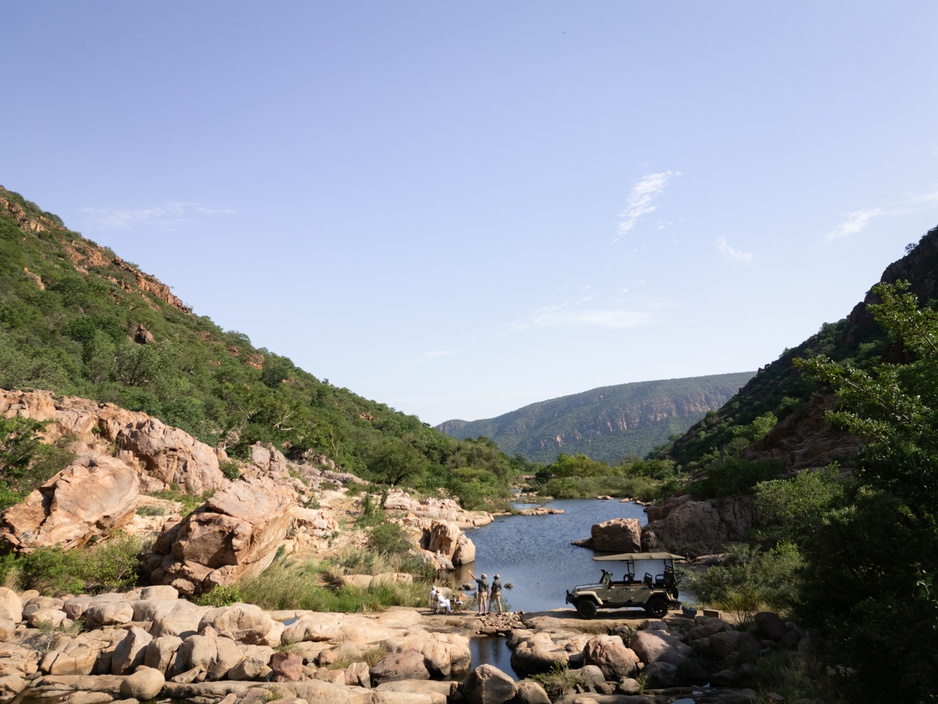
Photo by Jemma Wild
The absence of dangerous game means you can explore on foot without constant vigilance, hiking dramatic ridges and swimming beneath waterfalls that would be off-limits in traditional safari areas. Kudu, zebra, and various antelope species provide plenty of wildlife encounters, while the incredible bird diversity - over 600 species - keeps binoculars busy throughout each drive.
Your guide doubles as naturalist, tracking expert, and cultural interpreter. They'll point out medicinal plants used by local Venda healers, explain the ecosystem restoration work happening across the reserve, and share stories about the region's rich history dating back to the ancient Mapungubwe kingdom.
Perhaps most importantly, these drives support genuine conservation efforts. The Duseks' ambitious vision extends far beyond their own property - they're working to create wildlife corridors that could eventually reconnect this landscape to Kruger National Park and allow elephants to return to these mountains. Every game drive contributes to protecting and regenerating what may be one of South Africa's last wild frontiers.
R523, Waterpoort, 3813, South Africa

